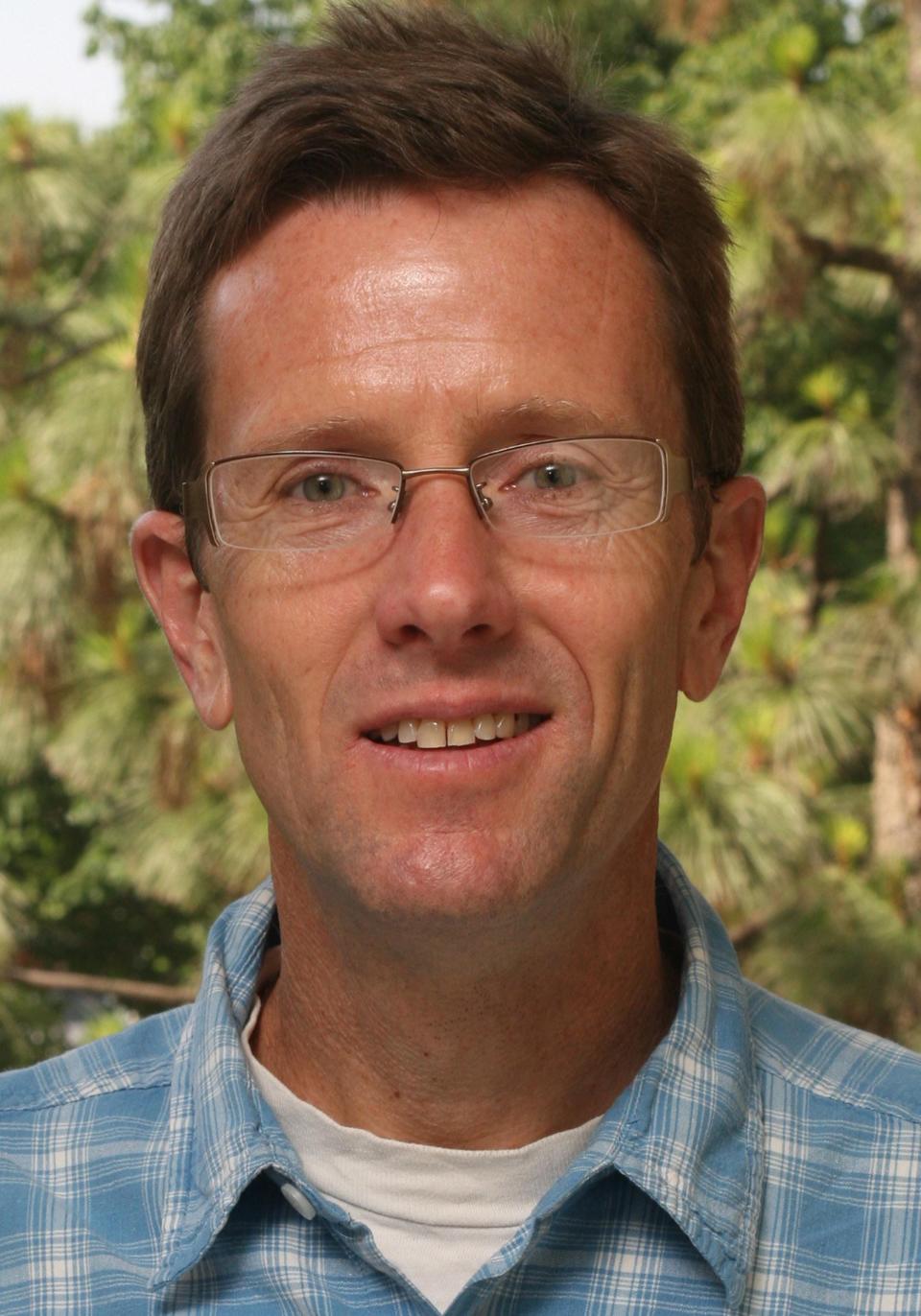Stuart Allison: Burlington's Aldo Leopold almost never wrong about conservation
My wife and I recently celebrated our wedding anniversary by spending a day in Burlington, Iowa, her hometown. We went by her childhood home, the church where we were married, and other places important to her. We also made a pilgrimage to the Aspen Grove Cemetery to pay our respects to my hero, Aldo Leopold, and his wife Estella. Despite being one of the most important thinkers of the 20th century, Aldo rests under a simple granite marker which just gives his name and dates: 1887-1948. There is no notation saying he was the author of "The Sand County Almanac" or the founder of "The Land Ethic." But the headstone is fitting. By all accounts he was a classic self-effacing Midwesterner who spoke with a flat Midwestern accent his entire life.
He is my hero for many reasons. They begin with his authorship of "The Sand County Almanac" and the vision he showed in developing "The Land Ethic." But they extend to how he lived his life. He and Estella were equal partners and it is doubtful he would have become who he was without her. They had three sons and two daughters who all became distinguished scientists. The children were treated the same — all were taught to camp, hunt, and fish, and all were expected to chop firewood or clear brush while at their retreat, The Shack, which really was a simple shack. He wrote outstanding academic papers and also wrote for the general public, frequently publishing articles in his local newspaper (which is an inspiration for my efforts). He was reported to be an excellent teacher and mentor. And he was from the rural Midwest, a part of the world I know well being a native too.

Leopold’s connection to the Midwest has always been important to me. He was born, raised, and eventually buried in Burlington. He went east for higher education and notably was an early graduate of the Yale School of Forestry. He began his career with the Forest Service in the southwest. But he returned to the Midwest where he refined and practiced his ideas. When I was growing up, it seemed like almost all truly great ideas or people came from elsewhere, not here in rural Illinois. Yes, Abraham Lincoln was from here and we are justifiably proud of him. This area has produced a couple of noted poets – Carl Sandburg and Edgar Lee Masters. Ronald Reagan was mostly a product of Hollywood by the time he became a governor and president. Somehow Betty Friedan and Richard Pryor were never mentioned in my schools despite being from Peoria. Leopold was one of us. He spoke like us and grew up seeing things I saw, feeling and smelling the same landscape and river that I know. I first read "The Sand County Almanac" when I was in high school, and I have read and re-read it ever since, reading most of it at least once a year.
I semi-facetiously refer to him as Saint Aldo because he was almost never wrong, and when he was, he learned from his mistakes. In his famous essay Thinking Like A Mountain he tells how as a young conservation officer with the Forest Service in the southwest he and some rangers saw a mother wolf and older pups down in a ravine. At that time, they believed you should kill any wolves you saw and so they shot them all. He got to bottom of the ravine in time to see the mother wolf die, “a fierce green fire” fading in her eye. And then he began to think that perhaps the wolf and the mountain knew more than he did. That they knew the intricate interconnections necessary to keep the mountain healthy in a way that scientists failed to grasp. That realization led to the formation of "The Land Ethic" in which Leopold asks us to live with the land (broadly construed to include all living things, the earth, water, and air) as an equal partner. Only then can we be both fully human and fully a part of this wonderful green planet we call home. His ideas would not be new to Native Americans who have never lost their connection to the land. But for a western scientist, coming from a tradition that looked at everything mechanistically, he made a radical leap forward. We are nothing without the land. It sustains us and nurtures us. We can only be fully human when we embrace all of creation around us.
That is why Saint Aldo is my hero. We sometimes think only children need heroes. But we never outgrow our need for heroes who can guide us to our better selves.
Stuart Allison is the Watson Bartlett Professor of Biology and Conservation at Knox College.
This article originally appeared on Galesburg Register-Mail: Stuart Allison: Aldo Leopold almost never wrong about conservation

